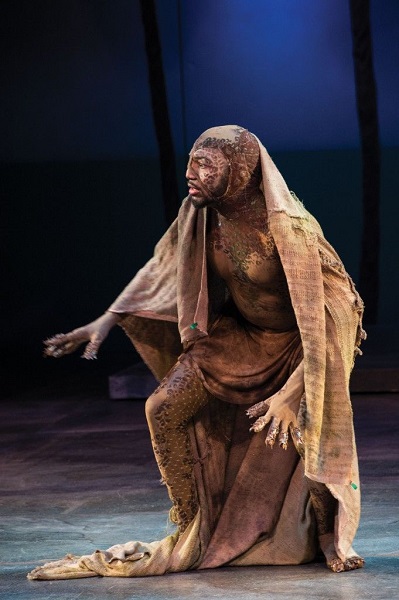Caliban upon Setebos is one such poem where Browning explores the theological world view about the existence of God from the vantage point of an outcast, a humanoid, Caliban.
Robert browning is considered to be one of its architects of the dramatic monologue, a genre that he made replete with the Victorian sense of morality, exploitation, decadence, and the individual consciousness of being. Browning has a keen eye for choosing his protagonists who are quite unconventional in the general sense.
It is one of the most interesting features of Browning’s dramatic monologues, that his characters essentially belong to the greyer hues of life and thus are more akin to our own selves. Reading Browning as a poet often delivers the feeling of reading our own stories. His poignant irony and dark humour strip off the double standards of human existence.
The intertextuality in the poem, where Browning refers to Caliban, from Shakespeare’s Tempest, is where he exercises his genius. By choosing a side character from a renowned play as the protagonist of his poem, Browning is centralizing the marginalized. This is considered to be one of the essential features that shaped the late Victorian era. Eyes were turning from the aristocracy to the one’s proletariat.
In this article we shall discuss about the Caliban upon Setebos summary and the different themes of Browning’s dramatic monologue.
Caliban upon Setebos critical analysis

Caliban upon Setebos explores the theological premise of the island where Caliban serves as a humanoid slave to Prosper (Prospero in The Tempest) and his daughter Miranda. It is a dramatic monologue where Caliban is pondering over his doubts regarding the existence and nature of Setebos, the one who created life.
In his evaluation of Setebos, Caliban tries to decode the nature of his creator as per his own. This is evident from the opening bracketed part of the poem taken from David Psalms 50:21.
“Thou thoughtest that I was altogether such a one as thyself.”
Caliban then ruminates over the purpose behind Setebos’ several creations. Here Browning beautifully represents the framework behind an absurd world. Through his own existential crisis, Caliban comes to conclude that Setebos did not have any particular purpose behind his creations rather he just did it for the sake of doing it.
The process of creation was simply a distraction for Setebos as he was ill at ease. According to Caliban, “the Quiet” is a power above Setebos. It feels no emotion of sadness or happiness and has transcended all possible weaknesses. Setebos is eternally upset for being detached from “the Quiet”.
Caliban thus creates a theological hierarchy from his understanding of his own nature and from everything he perceives as power relations in the island where he resides. Power and compassion, according to Caliban, are inversely proportional to each other.
When he addresses himself in the third person and imagines what he would have done had he had the power to give life to a mud structure, he decides that he would have done the same only to sit back and look at the sufferings of his creation which would be a source of his amusement.
Natural Theology of the Island
The subtitle of the poem Caliban upon Setebos, Natural Theology of the Island suggests Browning’s indulgence with science and theology at the same time. This was also the time when Darwin published his Origin of Species, claiming humans to be the result of evolution rather than a creation of God.
Therefore, the late Victorian period was a time when most works of art and literature were indulging in the debate between science and theology to elucidate the perpetual confusion behind man’s creation. The trick Browning plays with the natures of his protagonists in his dramatic monologues is that they are painted often in an unreliable tint so that the readers would know how much to believe and what to perceive from their monologues.
Therefore when Caliban examines the nature of his creator under the shadow of his own, it brings out the avarice of his own character and thus places him on the capricious side of the spectrum. The entire work therefore questions whether or not there is a Setebos or “the Quiet” at all in the world or that we are living in a Godless world ruled entirely by natural scientific processes like evolution.
Caliban upon Setebos quotes
“There may be something quiet o’er His head,Out of His reach, that feels nor joy nor grief,Since both derive from weakness in some way.I joy because the quails come; would not joyCould I bring quails here when I have a mind”